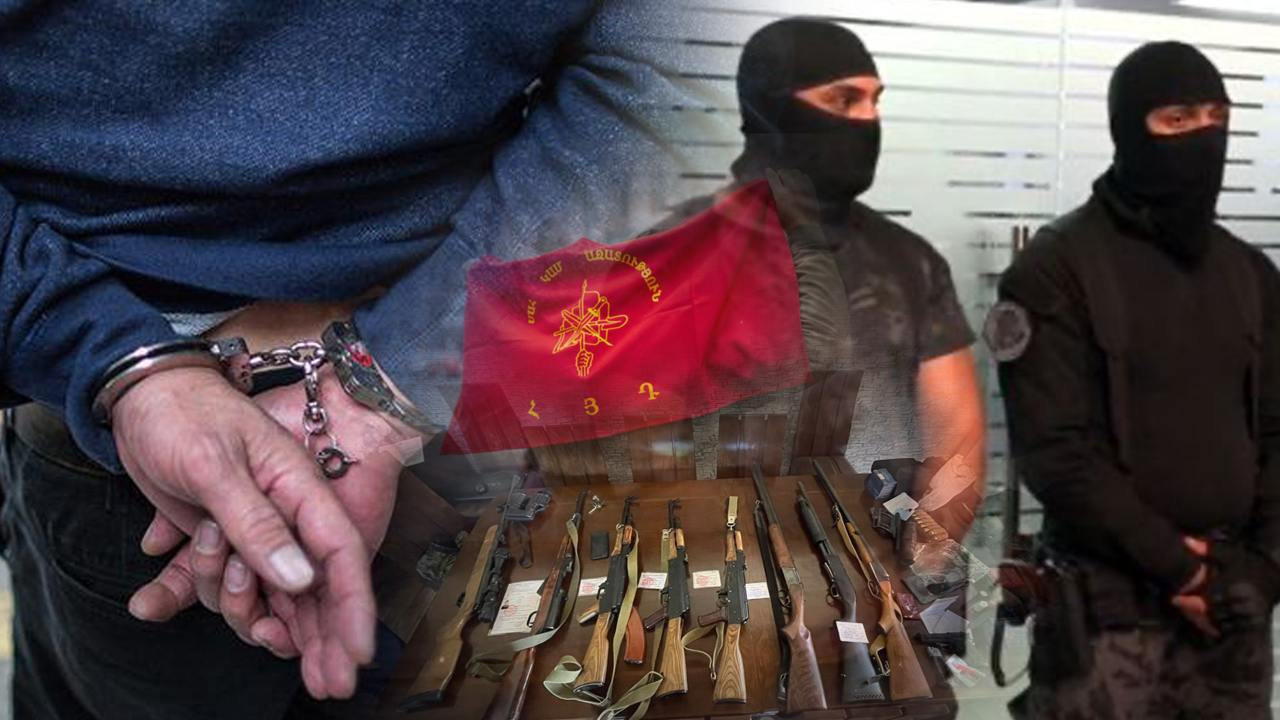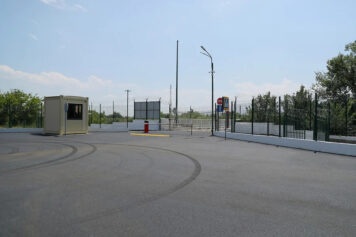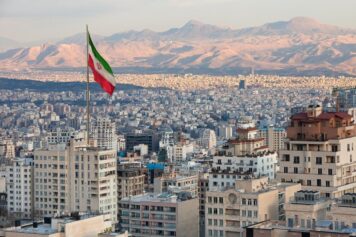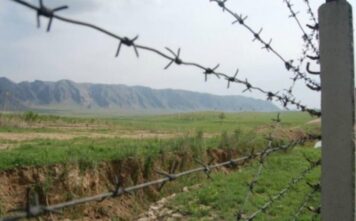Geopolitical changes and Armenia today: What should be done?
14.07
2025
Part One
Today, Armenia is experiencing some of its most difficult days. In the face of this widespread negativity, at the very least, it is senseless to speak of anything positive. The sad part is that, despite everything being bad, events are unfolding toward even greater deterioration. Mass arrests are underway, with the clear goal of concealing the sale of Armenia’s sovereignty in Abu Dhabi, while Nikol Pashinyan is fully documenting this process. Armenia is making new concessions under the guise of peace. Since 2021, I have been saying that this situation will burn us all out and this person will become president for at least 10 years,—effectively, turning Armenia into North Korea. Nikol will cede the so-called enclaves one by one, change the Constitution, close the national parties, cede the corridor under the name of a road, and on April 24 of next year he will visit Turkey and sign the peace document. Now let’s try to talk about steps aimed at preventing this catastrophe.
I remember, six years ago, when these individuals first came into power, they were faced with one domestic task: weakening the national institutions, mainly the Armenian Army, the Armenian Church, and the ARF (Dashnaktsutyun). The Armenian Army was instructed not to resist, a neo-Bolshevik campaign against the Armenian Church is run, and the persecution of the ARF aims to break the national line. These people, who do not have 1 percent of the dedication and activity of the ARF, are glorified by seeing the mass arrests of ARF members. They tremble at the mention of the word “Turk,” yet continue to make careless and uneducated judgments about the history of the ARF, far removed from their intellectual level. This is not about objective or critical discourse but about spreading rumors, anti-scientific and illogical talk—lacking knowledge and analytical methodology.
We could cite dozens of examples of what could have been done historically to prevent Armenia’s sovietization or to strengthen the preservation of the ARF’s activities in Armenia. But beneath such criticism, I would place ideas and knowledge. An attempt to belittle the role of the ARF in Armenian national life, Artsakh, Armenia, and the national-political goals and interests of the Armenian people is directly linked to the enemy’s approach—an enemy that is not only abroad but also inside, through its virtual network.
Let me repeat: this is not about criticizing the organization’s activities but about attacking the ideology of the ARF, labeling it, and marginalizing it. The consequences will be severe. However, I am confident that a strong and resilient national institution like the ARF can overcome this trial, which has been ongoing since the 1990s.
When discussing the ARF, one must have some life experience, political and historical knowledge, and a broad national outlook—not engage in petty gossip or quote random Soviet Armenian cinematography-style expressions to appear smart, nor sit on the couch criticizing and serving all anti-Armenian forces. In this regard, the media field is full of insignificant figures. Someone who cannot even write a normal journalistic piece is now talking about the events of 1908 or claiming that the ARF was responsible for the Armenian Genocide. Responding to such talk is pointless because they are so insignificant—smaller than flies—that they do not deserve the honor of being able to mock Dashnaktsutyun or the Armenian Church. They lack historical knowledge, analytical skills, responsibility, dignity, or intellect to speak properly, discuss, or critique constructively.
They are simply pawns, saved by Nikol Pashinyan, who brought them from the streets to the parliament to serve the number-one liar in Armenia—disgracing the parliament itself. Therefore, no matter how much an ordinary backpack tries to speak about history or how often he meets Turkish colleagues or how much the Turkish and British intelligence agencies manipulate him—showing him some historical documents to harp on about the Armenian cause (Hay Dat), and then, with a smile, shake hands with Erdogan—nothing will change. Turkey’s plans to occupy Armenia from the inside and from the border will not be halted.
The days of this irresponsible government are numbered. They have fallen into hysterical fits, and their actions are irrational. Even within law enforcement, some admit that stupidity has its limits—because they cannot substantiate false accusations, otherwise, what fool would try to stage a coup with a licensed hunting rifle? Only an even more stupid one. Or are you carrying out a coup with peas and paintball balls intended for the strikeball game stored inside a grenade-like object? At least bring a couple of grenades so that you have physical evidence, don’t you understand that either, or are you only eavesdropping on Archbishop Bagrat Galstanyan and editing the recordings to your liking? They are taking a disastrous step.
The word “terrorist” is now fashionable in the world, they label those they want to silence or to put into prison, so that they can cover up the flaws of their own authoritarian regime abroad. The world is now in turmoil, and the ongoing conflicts should not necessarily have an exclusively military nature. This is a hybrid war, where there are no winners; one can simply come out of it with minimal losses. In order not to increase these losses even more, the Pashinyan junta has resorted to internal terror, arresting and detaining all those who oppose its plan to destroy Armenia. The target is the Armenian Church, those who support it and have organizational skills, and the forces with a national ideology and image, which have driven Pashinyan to a mental breakdown.
As the world is in turmoil, they will pass the Armenia-Turkey tension under the guise of peace. In my view, what lies ahead for us is as follows.
Pashinyan is attempting to bypass or undermine the Nov. 9 statement or agreement. We used to criticize that document when it legitimized Artsakh’s occupation, but now we find ourselves in a situation where we long for and will still long for that document.
Outsourcing: The term has recently entered the political lexicon, at least in the last five or six years, when these individuals came to power. In a globalized world, the one who manages to cling tightly to sovereignty and come out with minimal losses benefits. Absolute sovereignty doesn’t exist, but delegating or authorizing the maintenance of a country’s territorial integrity speaks of its insolvency—something Pashinyan is doing. The state’s territory must be maintained by the army, but if another army or organization controls it, that entity is not significant here. In fact, involving a subject other than the state’s armed forces indicates partial sovereignty, which could lead to disastrous consequences—particularly, the disintegration and dismemberment of the state.
The point here is not about joint security control with the border guards of another state, but rather that Armenia can outsource the control of the road from Azerbaijan to Nakhijevan to a U.S. civil service. Pashinyan was humiliated in Abu Dhabi and was either forced or voluntarily agreed to such a step. He is not a fool, and I am sure Aliyev’s only demand was that the so-called peace agreement not include the word “corridor.” The West, supporting Armenia-Azerbaijan negotiations, will fully back Pashinyan and pressure Ankara and Baku to cooperate so that they do not provoke unrest in Armenia.
Aliyev is not a fool either. They need a route that will become a corridor over time, and they want Pashinyan to remain in power until he amends the Constitution and makes a clear commitment to ban all national forces and parties in Armenia. I reiterate: the Armenia-Azerbaijan peace agreement will not mention the Zangezur corridor but will include some clause on unblocking communication routes.
The goal is for Pashinyan to convince his supporters that no corridor was granted, and that those opposing him or calling Turks “guilty” are mistaken, guilty, and should be arrested. That is Pashinyan’s main objective.
He will take another step—going to Brussels to sign a new cooperation agreement with the European Union. This agreement will declare Armenia interested in the European integration process, and the Syunik corridor will serve to implement the Middle Corridor. They will again ask European officials to use the phrase “peace crossroads” in that document so that they can feed their own zombieland after returning to Yerevan. Nikol’s satellites will consider this a great achievement and will demand the withdrawal of the Russian military base from Armenia.
Meanwhile, all infrastructure passing through Syunik will be de-Russified, and the highway and possible railway through Meghri will be handed over to Western organizations, and with that, the Nikol-Baku-Ankara deal will become a reality, and they will say that Azerbaijan was not given any corridor, while that road will be NATO’s Turanian corridor, and a term very close to Nikol’s heart will be formed. Even in Turkey, he announced that he was comfortable with such an idea.
In reality, this will be a purely Azerbaijani-Turkish corridor, and Armenia will lose its connection with Iran. All this will happen with minimal effort—just a few domestic conflicts with Azerbaijani drivers, and Baku will declare that Armenia cannot ensure the safety of its citizens. Therefore, Azerbaijan will take over the security of its own citizens. A few years ago, when I was talking about this scenario, some said Abraham Gasparyan was giving the Turks and Azerbaijanis a map to destroy Armenia. Well, it’s okay, they’re unicellular organisms, amoebas, let them say such things; what really matters is that we should prevent this hellish scenario.





